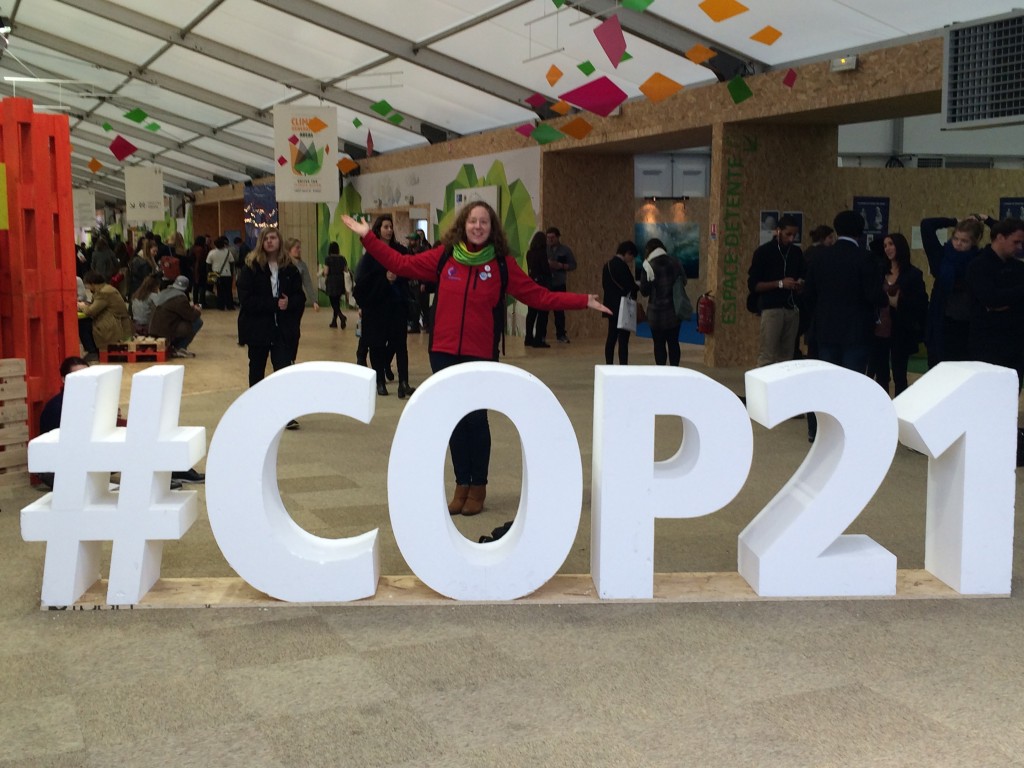There are moments you remember from your school years. Moments when your teacher brought some topic or issue to life so well, that it still sticks with you today. It is my hope that this past week will be one of those moments for many of the students we connected with through our Window into Paris program. I want the Paris Agreement to be a historic moment, so that in 30 years, when it comes up in conversation as the day we turned the tide on climate change, these students can say, “oh, yeah, I remember that. My teacher was there and she/he made COP21 come to life; that made climate change real for me.”

So, the deal is this. For this to be real and historic, we have a responsibility to make it so. Our last night in Paris, we sat together as a group and talked about the week and what it had meant. You can hear the Education Ambassadors talking about this in their video blogs, but a consistent theme was the sense that we all had the responsibility to take more action. The sense that, although we were already working hard on this issue, we had to work harder. Close to 200 countries may have sat down together and come to an agreement, but the agreement wasn’t enough and we all knew it.
So what do we do next? How can our actions be commensurate with the history that needs to be made? I honestly don’t know the answer to that entirely, but I feel a newfound weight of responsibility to go beyond what I have already been doing. To try some new things and go outside my comfort zone. Here are a few ideas I will share, knowing that when something is declared publicly, it is more likely to be accomplished.
- Activate! Most of my family, friends and colleagues will tell you that I do not self-identify as an “activist.” I am not comfortable in confrontational and highly visible situations. If there is one thing I will take away from being at COP21 though, it is that citizen voices united are not only powerful, but something leaders expect and look to when making decisions. The Paris Agreement may not be “legally binding” in the strict sense of the word, but there is language in it to which we need to hold our leaders accountable. If 1.5 degrees is as an ultimate goal, or red line, then we need to use our voices to demand that it it realized.
- Make sure climate change is in our educational standards. If you are in education or work with teachers, you know that if you want to guarantee that something is taught, you make sure it is in the standards of the school, the district, and ideally the state. One of the primary goals of bringing teachers to COP21 was to elevate the importance of climate change education as a part of the solution. The success of the Paris Agreement relies on innovations not yet developed and the knowledge and awareness that climate change is the issue of our time. Close to 15 states have adopted the Next Generation Science Standards, the first national standards to include climate change. Making sure the other 35 follow suit is integral to ensuring that climate change will be taught in our classrooms, and preparing a climate-literate generation ready to meet the challenge of this issue. I will make this a focus of our education program and empower teachers and students to raise their voices in asking for climate change standards.
- Vote for individuals who think climate change is important. We don’t have time for the ridiculous debates over the legitimacy of climate change that continue to ensnare US politics. The rest of the world has moved forward. Almost 200 nations of the world have agreed that climate action must happen. When I vote for any elected official, including school board, county commissioners, mayors, etc., I will ask them what their stance is on climate change action. If they stumble, or deny it is a problem, I will make sure I tell them that it is – and that they need to address it. In addition, I won’t shame those who have been deniers, but are trying to come back to reality. I will praise them for being leaders and offer them the opportunity to make up for their past transgressions.
- Stay positive and hold on to hope. This is hard work that we do, with a high emotional toll. It is of utmost importance that we continue to enjoy our lives, hug our kids, play outside, take time out, and do what we need to reboot. Despite all of its inadequacies, the Paris Agreement gives me hope that the world does recognize this: that climate change is the issue of our time, and that we truly do stand together, around the planet, in working collectively towards a cleaner, cooler, more resilient future.




